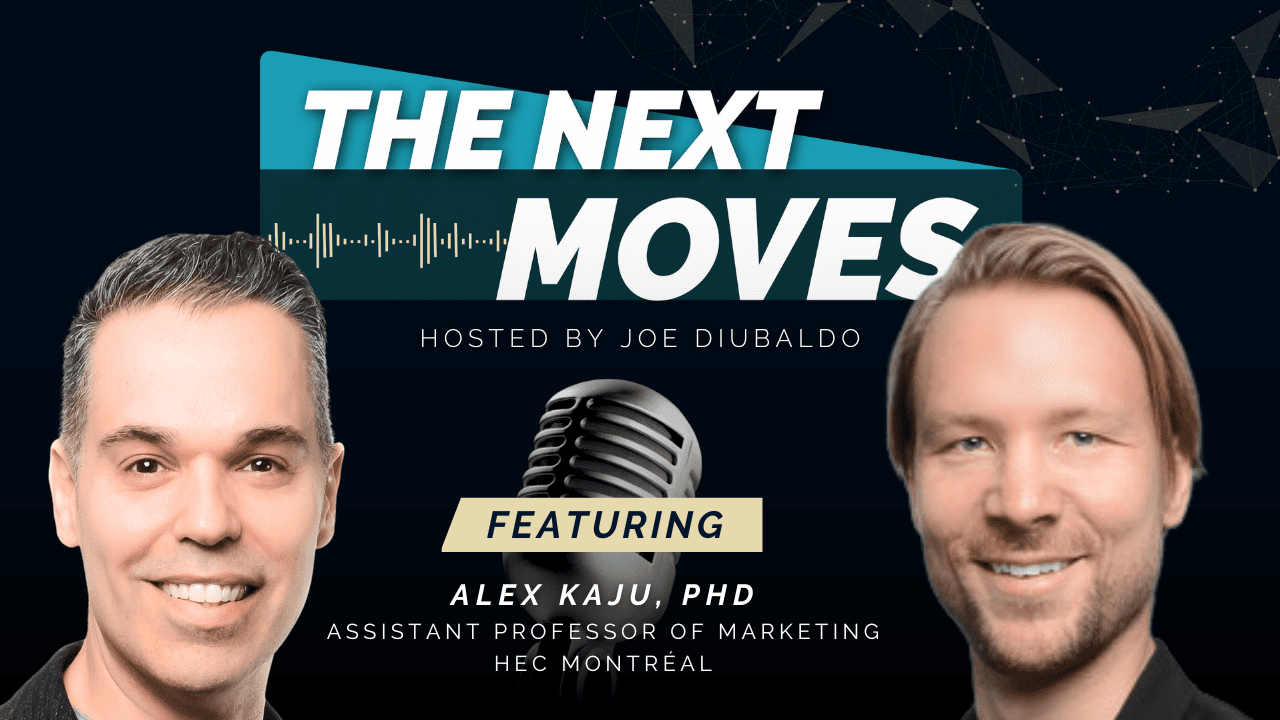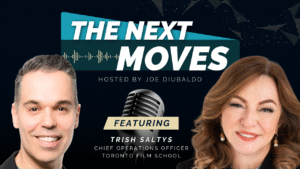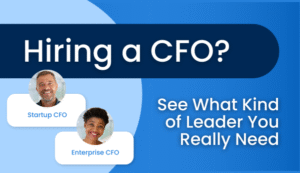What drives human behaviour? Why do we make the choices we do? These are the questions that have fuelled Alex Kaju’s career – a journey that has taken him from the football field to academia, from marketing to behavioural science, and from industry to consulting. Now an Assistant Professor of Marketing and Consumer Psychology at HEC Montréal and a consulting behavioural scientist, Alex’s path is anything but conventional.
From CFL Dreams to Behavioural Science
Born and raised in Toronto, Alex had aspirations of becoming a professional football player. He studied kinesiology at the University of Toronto, hoping to use his education to maximize his athletic potential. But a wakeboarding accident changed everything. A severe ankle injury left him sidelined for years, forcing him to reconsider his future.
That pivot led him to business school, where he discovered an unexpected passion for behavioural economics. One book, Dan Ariely’s Predictably Irrational, completely reshaped his perspective. He became fascinated with why people make the choices they do, particularly when those choices don’t seem rational. That curiosity led him to pursue a PhD in the psychology of judgment and decision-making.
Cracking the Code of Hiring Decisions
During his doctoral studies, Alex took on a consulting role that would profoundly shape his approach to applying behavioural science in the real world. He started working with Clarity Recruitment helping hiring managers navigate the psychology behind decision-making. The insight was clear: hiring isn’t just about finding a candidate who checks the right boxes, it’s about understanding human behaviour, risk perception, and unconscious biases.
One of the key takeaways from his work in recruitment was the distinction between search mode and choice mode. In search mode, individuals cast a wide net, evaluating options without committing. In choice mode, they must commit, often facing the psychological weight of uncertainty and loss aversion. The problem? Many people unknowingly blend the two, making decision-making messier and more complicated than it needs to be. His research showed that setting clear criteria before evaluating options leads to better decisions.
Applying Behavioural Science in the Corporate World
Alex’s expertise took him beyond recruitment and into the corporate world. He became Head of Behavioural Science at Novartis in Dublin, where he focused on how behavioural insights could optimize workforce performance. From improving employee engagement to refining goal-setting strategies, his work helped shape HR practices for a global organization.
A simple but powerful framework he champions is the EAST model, which is essentially making decisions Easy, Attractive, Social, and Timely. Whether it’s encouraging employees to schedule performance reviews or helping consumers make better purchasing choices, small behavioural nudges can have a significant impact. The lesson? If a desired action isn’t happening, it’s likely because one of those four elements is missing.
The Science Behind Everyday Decisions
Now, as an academic, Alex teaches students about consumer behaviour, decision-making, and marketing psychology. His research highlights how predictable our decisions often are and how understanding those patterns can drive better business strategies. From why people choose a certain coffee size to how brands can leverage social proof to influence purchasing decisions, his work sheds light on the often-overlooked mechanisms behind human behaviour.
One of the most fascinating insights he shares is the role of the compromise effect; our tendency to choose middle-ground options when faced with extremes. This simple principle explains why many coffee shops strategically place a mid-sized drink between two price points, making it the most popular choice.
The Power of Change and Curiosity
Reflecting on his own career, Alex emphasizes two key pieces of advice:
Take the meeting. Some of his biggest opportunities, whether in academia, consulting, or industry, came from simply reaching out and having a conversation.
Embrace change. Whether it was shifting from sports to academia or moving across continents for a new job, every pivotal moment in his career stemmed from a willingness to take a leap.
For those intrigued by the intersection of psychology and business, Alex offers a simple test: If you find yourself constantly asking why people behave the way they do, you may be wired for behavioural science.
Alex’s journey is a testament to the power of curiosity, adaptability, and applying scientific insights to real-world challenges. Whether optimizing hiring decisions, shaping corporate strategies, or teaching the next generation of business leaders, his work continues to unravel the complex tapestry of human behaviour – one decision at a time.
If you need support finding finance or accounting talent:







